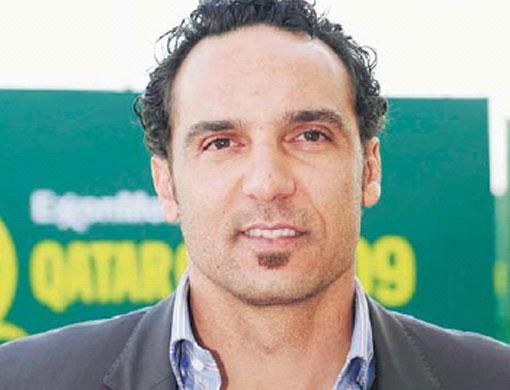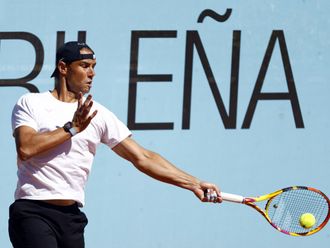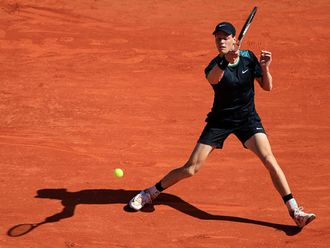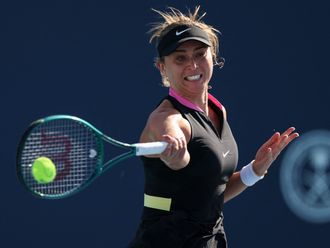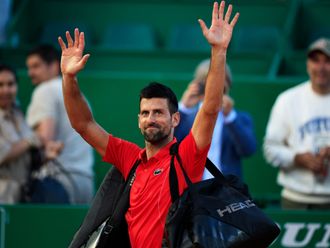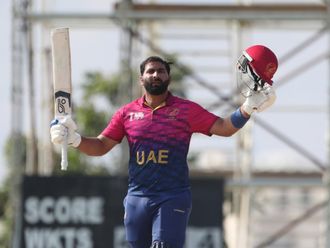Doha: Karim Al Alami is no stranger to tennis, either as one of the top-25 players in the world or now as tournament director for the Qatar ExxonMobil Open, an ATP 250 event on the men's tour.
Based in the region as a specialist analyst with Qatar's Al Jazeera television after his retirement in 2003, Al Alami was offered the opportunity of breathing life into this annual tournament.
But this happens to be just one of the many hats being worn by the Moroccan player - he is also a board member and technical director at the Qatar Tennis Federation (QTF).
One of the many changes brought in by him include the assurance of a quality field, which, in turn, ensured that spectators would be willing to pay for tickets to watch some of the best players in action.
Though the Qatar Open has been a regular feature since 1993, Al Alami is best remembered after his first round defeat of Pete Sampras in the 1994 edition here.
But now, it is time for one of the most famous Moroccan tennis players to chart a new course as tournament director in Qatar.
Gulf News: A brand new role of running a tournament & is this something you really wanted? How does this fit in?
Karim Al Alami: Basically, I am from the tennis business, whether as a player or the Davis Cup captain for the Moroccan team or later as an analyst and commentator for Al Jazeera.
So when the Qatar Tennis Federation and the Qatar National Olympic Committee offered me this job I saw it as a great opportunity. It's not something that I had in mind, but the opportunity came along and after much thought, I decided to take up the new role.
How much of a challenge is it?
Yes definitely, this is a new challenge for me and a new dimension in my life. In November last year we did the end-of-season Sony Ericsson WTA Championships and things have only got better for this tournament now. So far, this has been a great learning experience on how to organise big events.
As a former player, what sort of experience do you bring to this event?
I think as an ex-player, I am in a perfect condition to understand the needs of the players coming here &
I have travelled and played in so many different tournaments all over the world and I have learnt from this experience. But now, things are different when it comes to organising a tournament.
In this case, how has your experience helped? Is this one of the reasons why the big names are here this year?
One of the things with players is that they would trust another player. The big stars would always be more open to an event being run by a former player as he would best know the needs of the players. So this is a definite plus point for us here.
Have spectators been kept away from the tournament after you started charging them for tickets?
The organisers used to charge VIP tickets when they first started in 1993. But after that they stopped charging money and people stopped attending even though it was free of charge.
My rationale is that people should be willing to pay and watch some of the best stars. P eople have understood this concept and in fact we are fully sold out this year.
Dubai and Doha & how would you look at the two tournaments? Do you compete or complement each other?
We are not competing with any body, Dubai or Abu Dhabi, Bahrain, Paris or New York. I'm really here to improve my tournament and to learn from all the mistakes.
There is a fully professional team bringing in their experience together in making this tournament a success. Our aim is to ensure that all are happy - the players, the sponsors, the media and the spectators.
You have seen this tournament over the years, first as a player and now as the tournament director. What changes do you envisage?
I have seen the changes over the years in this tournament and I don't want to criticise this. We needed to change a lot of things and now that I run this tournament I will change a lot of things. So the first thing I did after I landed the job was to bring in a professional team.


